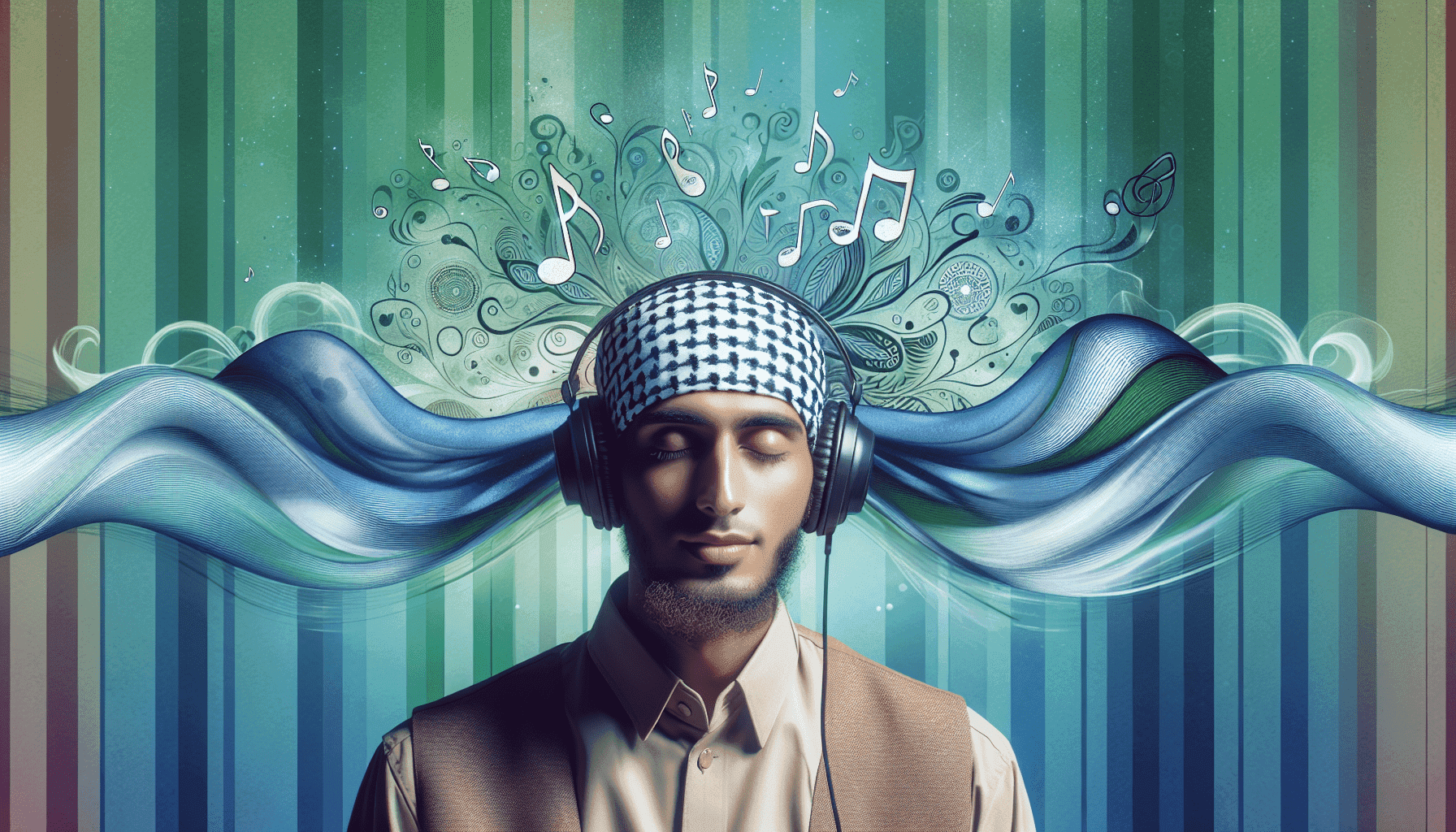Power of Music Therapy: Have you ever stopped to ponder how deeply music intertwines with your emotional experiences and mental well-being? From melodies that lift your spirits to rhythms that provide solace, music plays an undeniably pivotal role in shaping our emotional landscape. This connection forms the bedrock of music therapy—a therapeutic intervention that leverages the power of sound to improve mental health. This guide will explore the essence of music therapy, its historical context, benefits, and applications in mental health. By the end, you’ll understand how music becomes a bridge to well-being and how it wields transformative potential for mental health.

Table of Contents
The Historical Context of Music Therapy
Music as therapy is not a novel concept. Throughout history, numerous cultures have recognized the healing potential of sound.
Ancient Origins of Music Therapy
The earliest records of music therapy date back to ancient civilizations. Societies like the Egyptians, Greeks, and Chinese used music in healing rituals and spiritual ceremonies with the belief that musical sounds could influence human health and behavior. In Greece, for instance, music was used to alleviate mental disorders, and philosophers such as Plato and Aristotle advocated for its healing virtues.
The Evolution of Music Therapy in the Modern Era
In the 20th century, music therapy gained formal recognition as a scientific field. Its development flourished during and after World War II, as music was used to assist in the recovery of soldiers suffering from physical and psychological trauma. Hospitals hired musicians to provide music-based therapeutic interventions, culminating in the establishment of formal training programs and professional associations dedicated to music therapy.
What is Music Therapy?
Music therapy is not merely about listening to music. It is a structured, evidence-based practice utilized by trained professionals to address therapeutic goals using music.
The Core Elements of Music Therapy
A certified music therapist employs various musical elements—rhythm, melody, harmony, and dynamics—to facilitate healing. During therapy sessions, individuals may engage in creative processes such as composing, singing, or playing instruments, or they might immerse themselves in music listening and analysis. Each of these activities is strategically chosen to promote mental health and emotional well-being.
Professional Standards and Ethics in Music Therapy
The practice is regulated by organizations such as the American Music Therapy Association (AMTA), which ensures that practitioners adhere to a code of ethics and standards of practice. Proper training equips therapists with the expertise to assess a patient’s needs and tailor interventions that offer emotional, cognitive, and social support.

The Science Behind Music Therapy’s Effectiveness
Music therapy is underpinned by a robust body of research that underscores its effectiveness.
Neurological Impact of Music on the Brain
Studies using brain imaging techniques have demonstrated that music stimulates neural pathways associated with the areas responsible for processing emotions, memories, and even pain perception. Music’s ability to activate these pathways suggests why it is such an effective medium in eliciting emotional responses and fostering mental health improvements.
Psychological Benefits of Music Therapy
Research shows music therapy has a profound impact on psychological well-being. It has been effective in reducing symptoms of depression, anxiety, and stress while also enhancing mood, increasing self-esteem, and promoting emotional expression. It provides a safe medium for exploring and articulating complex emotions, making it a valuable tool in psychological interventions.
Applications of Music Therapy in Mental Health
The adaptability of music therapy allows it to be employed in diverse mental health contexts.
Music Therapy for Anxiety and Depression
In cases of anxiety and depression, music therapy can provide relief by regulating emotions, reducing physiological stress responses, and improving mood. Techniques such as song-writing allow individuals to express their feelings creatively, while guided music listening can promote relaxation and decrease symptoms of anxiety.
Music Therapy in Trauma and PTSD
Music therapy has proven to be efficacious in working with individuals who have experienced trauma, including post-traumatic stress disorder (PTSD). The non-verbal nature of music enables access to memories and emotions that may be difficult to articulate verbally. Therapeutic sessions can help individuals reframe traumatic experiences and develop coping strategies to mitigate PTSD symptoms.
Music Therapy for Cognitive Disorders
When addressing cognitive disorders such as dementia, music therapy can help improve memory recall, orientation, and emotional well-being. Songs from childhood or significant life events can stimulate memory and aid in emotional connection, even in advanced stages of cognitive decline, thereby enhancing quality of life.

Case Studies and Success Stories
Real-world examples elucidate the tangible impact of music therapy.
Healing Power in Recovery Settings
In clinical settings, patients recovering from surgeries or illnesses have shown significant improvements in recovery speed and pain management when involved in music therapy. Hospitals report that patients engaging in music therapy sessions often require less pharmacological intervention for pain relief.
Enhancing Quality of Life in Geriatric Care
In geriatric facilities, music therapy has been instrumental in enhancing the quality of life for the elderly. Through group and individual sessions, residents often exhibit improved communication, better emotional expression, and higher overall levels of satisfaction.
Challenges and Considerations
Despite its numerous benefits, music therapy is not without its challenges.
Accessibility and Awareness
One of the primary barriers is the accessibility to qualified music therapists and therapeutic resources, particularly in underrepresented communities. Increasing awareness and integration of music therapy into standard treatment plans can help broaden access.
Individual Varied Responses to Music
Responses to music are highly individualistic. What may be therapeutic for one person might not resonate with another. It requires music therapists to undertake personalized evaluations and tailor interventions that best align with individual preferences and therapeutic needs.

Future Directions in Music Therapy
As the field of music therapy continues to evolve, innovative approaches and technologies are shaping its future.
Technological Advancements
The integration of technology, such as virtual reality and personalized digital music platforms, is enhancing the delivery of music therapy. These innovations allow for more customized and engaging therapeutic experiences, expanding the reach of music therapy beyond traditional settings.
Expanding Research Horizons
Ongoing research aimed at understanding the underlying mechanisms of music therapy’s effects will further solidify its place in therapeutic practices. Collaborative studies across disciplines will enrich the evidence base and broaden the application of music therapy in addressing mental health challenges.
Conclusion
Music therapy exemplifies the profound connection between sound and psychological well-being. By harnessing the intrinsic power of music, this therapeutic practice offers a holistic approach to improving mental health. From alleviating symptoms of anxiety and depression to enhancing cognitive function, music therapy opens pathways for transformation and healing. As you contemplate the role of music in your life, recognize its potential as not just entertainment, but a bridge to emotional resilience and mental health. Embracing music therapy invites you to explore a future where mental well-being is within harmonious reach.
For further exploration, you might consider engaging with a certified music therapist or seeking out additional resources that delve into the convergence of music and therapy. Your journey into understanding this symphony of healing has just begun, and the melody awaits.

Power of Music Therapy: A Holistic Approach to Mental and Neurological Health

